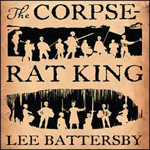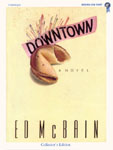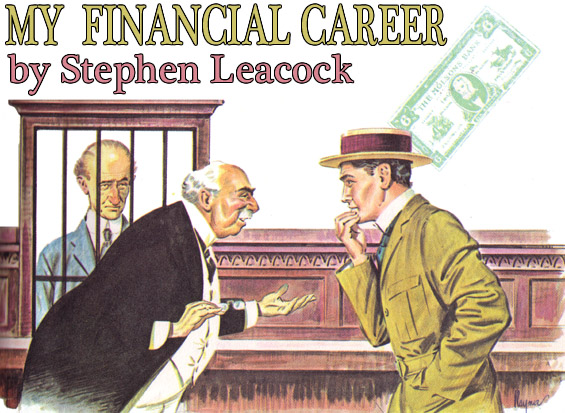
 The Corpse-Rat King
The Corpse-Rat King
By Lee Battersby; Read by Michael Page
1 MP3 CD / 10 CDs– 11 hours – [UNABRIDGED]
Publisher: Brilliance Audio from Angry Robot
Published: 2012
Themes: / Fantasy / Undead / Kings / Mistaken Identity /
Marius dos Hellespont and his apprentice, Gerd, are professional looters of battlefields. When they stumble upon the corpse of the King of Scorby and Gerd is killed, Marius is mistaken for the monarch by one of the dead soldiers and is transported down to the Kingdom of the Dead.
Just like the living citizens, the dead need a King — after all, the King is God’s representative, and someone needs to remind God where they are.
And so it comes to pass that Marius is banished to the surface with one message: if he wants to recover his life he must find the dead a King. Which he fully intends to do.
Just as soon as he stops running away.
I made the mistake of going into this book with too high expectations. It was a comedy fantasy with a criminal protagonist and was narrated by Michael Page. I was hoping for another The Lies of Locke Lamora. It’s not. Despite this, I was nearly won over.
This is the tale of the merchant’s son turned-bad Marius. He is a master at assorted cons and gambling. Yet he has nothing to show for his talents. He has picked up, almost by accident and certainly against his better judgement, a dimwit of an apprentice. Surprisingly death seems to bring out the best in Gerd and he is a much more intelligent character after he dies. Whether this is intended I’m not sure, as he is only criminally dim until the point when he dies.
The middle of this book takes Marius on tour of assorted locales, including the delightfully and accurately named Dog Crap Archipelago, before closing in on the target of his quest. As entertaining as parts of this journey were, it felt almost random and aimless. I’m still not sure what they contributed to the whole of the story to justify their presence. Marius is no-doubt meant to grow from these encounters, but it was done far too subtly for me to follow.
The story has a stronger finish as Marius and Gerd embark on a caper to steal a corpse and then escape.
A good concept with great wordsmithing. Sadly the character growth and sense of the world were only given lip service. The plotting and resolution came together more because that was how the story was to finish than that it was where the story actually led. In short, this book needed a few more times through with an editor to tighten up a pretty, but weak story.
Michael Page is a delight to listen to. His characterisation is rich and plummy.
Posted by Paul [W] Campbell


 Downtown
Downtown

